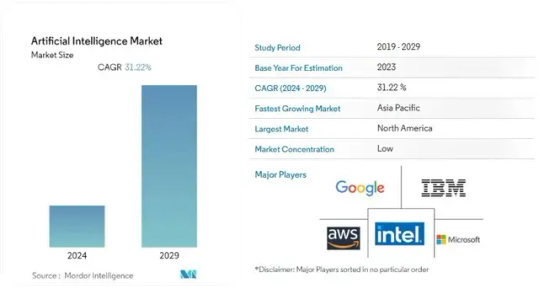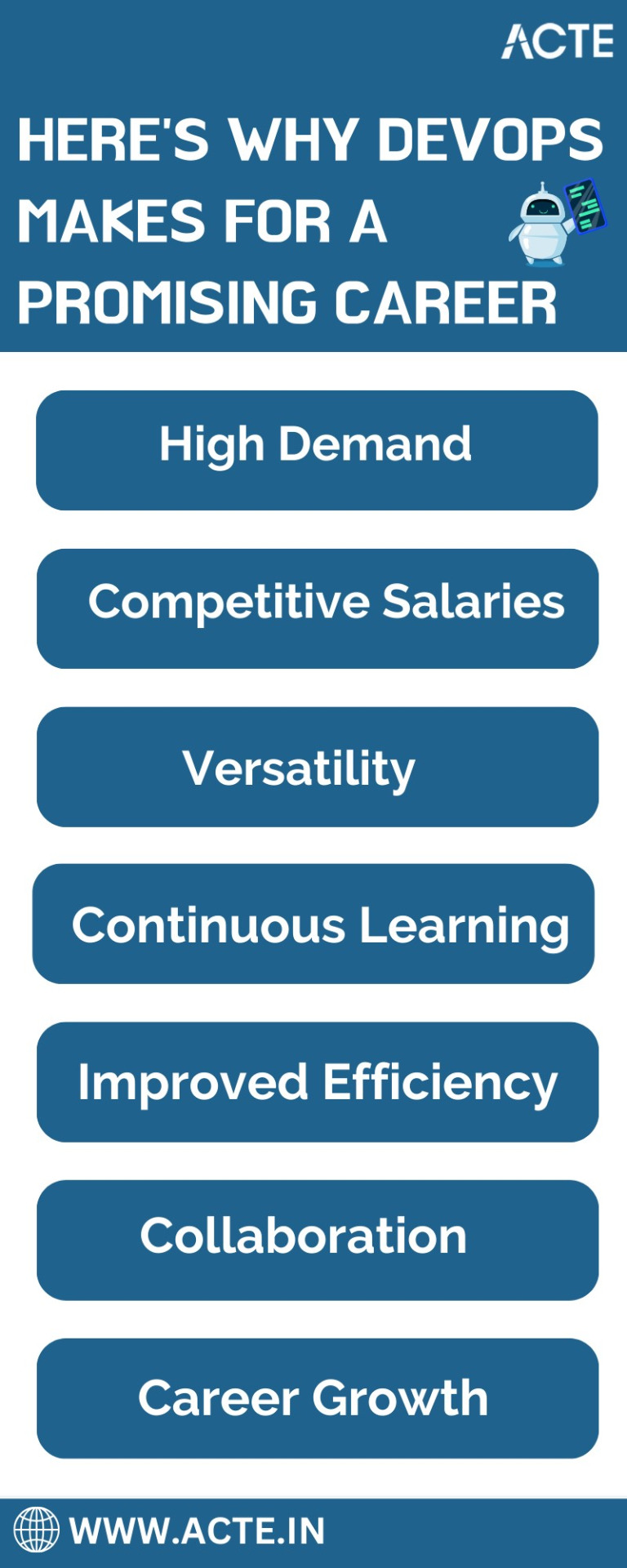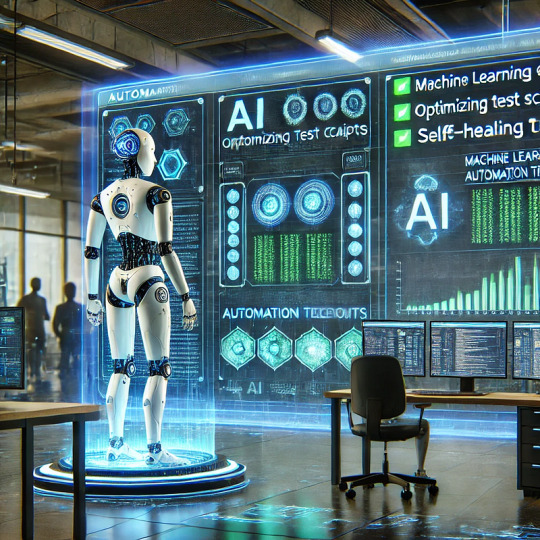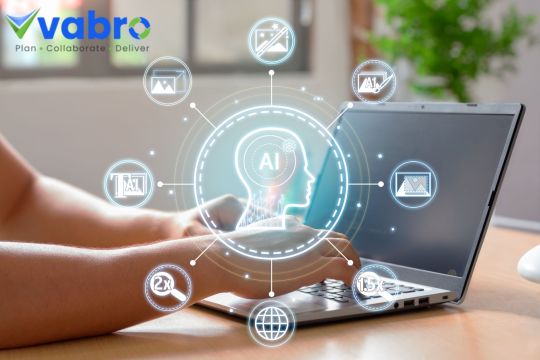#Future Of AI-Driven DevOps
Explore tagged Tumblr posts
Text
Uncover the revolutionary synergy between AI and DevOps infrastructure in this in-depth analysis. Explore transformative insights for unparalleled efficiency. Dive into the future of seamless collaboration!
#AI Integration Into DevOps Methodologies#AI Into DevOps Infrastructure#AI Into DevOps Techniques#AI-Driven Analytics#DevOps Infrastructure#DevOps Methodologies#DevOps Practices#DevOps Strategies#Future Of AI-Driven DevOps#Implementing AI In DevOps#Software Development Landscape
0 notes
Text
Uncover the evolution of DevOps with AI's transformative touch. Dive deep into a comprehensive analysis, unlocking the future of agile infrastructure. Engage with innovation in every byte!
#AI Integration Into DevOps Methodologies#AI Into DevOps Infrastructure#AI Into DevOps Techniques#AI-Driven Analytics#DevOps Infrastructure#DevOps Methodologies#DevOps Practices#DevOps Strategies#Future Of AI-Driven DevOps#Implementing AI In DevOps#Software Development Landscape
0 notes
Text
Explore the transformative synergy of AI and DevOps, driving innovation and efficiency in software development. Unleash the power of intelligent automation.
#AI Integration Into DevOps Methodologies#AI Into DevOps Infrastructure#AI Into DevOps Techniques#AI-Driven Analytics#DevOps Infrastructure#DevOps Methodologies#DevOps Practices#DevOps Strategies#Future Of AI-Driven DevOps#Implementing AI In DevOps#Software Development Landscape
0 notes
Text
Explore the transformative synergy of AI and DevOps, driving innovation and efficiency in software development. Unleash the power of intelligent automation.
#AI Integration Into DevOps Methodologies#AI Into DevOps Infrastructure#AI Into DevOps Techniques#AI-Driven Analytics#DevOps Infrastructure#DevOps Methodologies#DevOps Practices#DevOps Strategies#Future Of AI-Driven DevOps#Implementing AI In DevOps#Software Development Landscape
0 notes
Text
Explore the transformative synergy of AI and DevOps, driving innovation and efficiency in software development. Unleash the power of intelligent automation.
#AI Integration Into DevOps Methodologies#AI Into DevOps Infrastructure#AI Into DevOps Techniques#AI-Driven Analytics#DevOps Infrastructure#DevOps Methodologies#DevOps Practices#DevOps Strategies#Future Of AI-Driven DevOps#Implementing AI In DevOps#Software Development Landscape
0 notes
Text
Embrace the Future with AI 🚀

The AI industry is set to skyrocket from USD 2.41 trillion in 2023 to a projected USD 30.13 trillion by 2032, growing at a phenomenal CAGR of 32.4%! The AI market continues to experience robust growth driven by advancements in machine learning, natural language processing, and cloud computing. Key industry player heavily invests in AI to enhance their product offerings and gain competitive advantages.
Here is a brief analysis of why and how AI can transform businesses to stay ahead in the digital age.
Key Trends:
Predictive Analytics: There’s an increasing demand for predictive analytics solutions across various industries to leverage data-driven decision-making.
Data Generation: Massive growth in data generation due to technological advancements is pushing the demand for AI solutions.
Cloud Adoption: The adoption of cloud-based applications and services is accelerating AI implementation.
Consumer Experience: Companies are focusing on enhancing consumer experience through AI-driven personalized services.
Challenges:
Initial Costs: High initial costs and concerns over replacing the human workforce.
Skill Gap: A lack of skilled AI technicians and experts.
Data Privacy: Concerns regarding data privacy and security.
Vabro is excited to announce the launch of Vabro Genie, one of the most intelligent SaaS AI engines. Vabro Genie helps companies manage projects, DevOps, and workflows with unprecedented efficiency and intelligence. Don’t miss out on leveraging this game-changing tool!
Visit www.vabro.com
#ArtificialIntelligence#TechTrends#Innovation#Vabro#AI#VabroGenie#ProjectManagement#DevOps#Workflows#Scrum#Agile
3 notes
·
View notes
Text
Mastering DevOps: A Path to Tech Leadership and Innovation
In the ever-evolving landscape of technology, DevOps stands out as an indicator of innovation and efficiency. As we navigate the digital age, the role of DevOps, which seamlessly blends development and operations practices, has become increasingly important. It not only accelerates software delivery but also promotes collaboration, enhances automation, and ensures the delivery of high-quality applications. If you're considering a career in tech, DevOps is an enticing and promising option. In this comprehensive exploration, we'll dive deep into the world of DevOps careers, unveiling the manifold opportunities, challenges, and avenues for growth that it offers.

Why DevOps? The Irresistible Appeal
1. High Demand for DevOps Professionals
In a world where businesses are constantly striving for efficiency and agility, DevOps professionals are in high demand. Organizations of all sizes, from startups to Fortune 500 giants, recognize the value of DevOps in streamlining development processes, enhancing automation, and improving collaboration among cross-functional teams. This demand translates into a plethora of job opportunities for DevOps experts.
2. Competitive Salaries
In the realm of tech careers, compensation is often a significant factor. DevOps practitioners frequently enjoy competitive salaries, and experienced DevOps engineers, in particular, are handsomely rewarded. This makes DevOps not only a fulfilling career but also a financially rewarding one.
3. Versatility Across Industries
One of the striking features of a DevOps career is its versatility. DevOps skills are transferable across various industries, including finance, healthcare, e-commerce, and more. The fundamental principles and tools of DevOps are universally applicable, allowing you to explore different sectors while leveraging your expertise.
4. Continuous Learning and Adaptation
The tech world thrives on change, and DevOps is no exception. This dynamic field continuously evolves with the emergence of new tools and practices. Staying updated with the latest trends and technologies is not just a requirement but a thrilling aspect of a DevOps career. The pursuit of knowledge and adaptation are ingrained in the DevOps culture.
5. Enhanced Efficiency Through Automation
At the core of DevOps lies the principle of automation. DevOps practices emphasize automating manual processes, reducing errors, and accelerating deployment cycles. The result is enhanced efficiency in development pipelines, enabling teams to deliver software faster and with higher quality.
6. Collaboration as a Core Value
DevOps promotes collaboration and communication between traditionally siloed teams, such as development and operations. This cultural shift towards teamwork and shared responsibilities fosters a more inclusive and productive workplace environment.
7. A Path to Leadership
A DevOps career is not just about technical skills; it's also a pathway to leadership positions. As you gain experience and expertise, you'll find yourself well-equipped to step into roles like DevOps manager, architect, or consultant, where you can influence and shape the DevOps practices of your organization.

The Future of DevOps: A World of Innovation
As we peer into the future, the DevOps landscape promises even more exciting developments:
1. Advanced Automation and AI
Automation will continue to be a driving force in DevOps, with artificial intelligence (AI) playing a more significant role. AI-powered tools will enhance predictive analytics, optimize resource allocation, and further reduce manual intervention in the software development lifecycle.
2. DevOps in Edge Computing
The rise of edge computing, driven by the Internet of Things (IoT), presents new challenges and opportunities for DevOps. DevOps practices will expand to accommodate the unique demands of edge environments, enabling real-time data processing and analysis at the edge of the network.
3. Security-First DevOps
With cybersecurity concerns on the rise, DevOps will place an even greater emphasis on security practices. DevSecOps, the integration of security into the DevOps pipeline, will become standard practice, ensuring that security is not an afterthought but an integral part of the development process.
4. Hybrid and Multi-Cloud DevOps
Hybrid and multi-cloud environments are becoming increasingly prevalent. DevOps will continue to evolve to seamlessly integrate on-premises and cloud resources, providing organizations with the flexibility to choose the best infrastructure for their needs.
5. DevOps as a Service
DevOps as a Service (DaaS) is gaining traction. Organizations will increasingly turn to third-party providers for DevOps solutions, allowing them to focus on their core competencies while leveraging the expertise of specialized DevOps teams.
In a world driven by technology, a career in DevOps offers an exciting journey filled with opportunities for growth and innovation. Whether you're just starting your career or looking to make a transition, DevOps holds the promise of a rewarding path.
To embark on this journey, it's essential to equip yourself with the right skills and knowledge. ACTE Technologies, a renowned provider of DevOps training and certification programs, stands ready to be your guiding light. Their expert-led courses can help you build a complex foundation in DevOps principles, master the relevant tools, and stay ahead in this ever-evolving field.
So, embrace the future of technology with a career in DevOps, and let ACTE Technologies be your trusted companion on the road to excellence. As you explore the endless possibilities of DevOps careers, may your passion for innovation and your commitment to continuous learning lead you to success and fulfillment.
11 notes
·
View notes
Text
How AI Agent Development is Revolutionizing Software Engineering and Automation
Artificial Intelligence (AI) is reshaping industries at an unprecedented pace, and software engineering is no exception. AI agents—intelligent software entities that can learn, reason, and act autonomously—are revolutionizing the way software is developed, tested, and deployed. From automating repetitive tasks to enhancing decision-making, AI agent development is setting new standards in efficiency and innovation.

The Rise of AI Agents in Software Engineering
Traditional software development relies heavily on manual coding, debugging, and testing. However, AI-powered agents are transforming these processes by automating complex workflows and improving software quality. Here’s how AI is changing the game:
1. Automated Code Generation and Optimization
AI agents like GitHub Copilot, Tabnine, and OpenAI’s Codex assist developers by generating code snippets, suggesting improvements, and even writing entire functions. These AI-powered assistants not only speed up development but also reduce errors, ensuring cleaner and more efficient code.
2. Enhanced Software Testing and Debugging
Testing is a critical phase in software development, often requiring extensive manual effort. AI-driven test automation tools can identify bugs, generate test cases, and even predict potential vulnerabilities. Agents like Testim and Applitools use machine learning to optimize testing, making software more reliable and secure.
3. Smart DevOps and CI/CD Automation
Continuous Integration and Continuous Deployment (CI/CD) pipelines are essential for modern software development. AI-powered agents streamline these processes by automatically monitoring deployments, detecting anomalies, and optimizing resource allocation. Tools like Harness and CircleCI integrate AI to make DevOps smarter and more efficient.
4. AI-Driven Code Review and Quality Assurance
AI agents are revolutionizing code reviews by detecting potential issues, enforcing best practices, and ensuring compliance with coding standards. Platforms like DeepCode and CodeGuru leverage AI to provide real-time feedback, reducing the workload for human developers while improving code quality.
AI Agents in Business Process Automation
Beyond software development, AI agents are also driving automation in various business functions:
Customer Support Automation – AI-powered chatbots and virtual assistants handle customer inquiries, reducing response times and improving user experience.
Intelligent Process Automation (IPA) – AI agents analyze workflows, optimize tasks, and eliminate inefficiencies in business operations.
Robotic Process Automation (RPA) – AI-enhanced RPA bots perform repetitive tasks like data entry, invoicing, and compliance checks with minimal human intervention.
The Future of AI in Software Engineering
As AI continues to evolve, its role in software engineering and automation will only expand. Future AI agents may:
Write complex software with minimal human input.
Predict and prevent security breaches before they happen.
Enable fully autonomous software development teams.
Companies investing in AI agent development are gaining a competitive edge by accelerating innovation and reducing operational costs.
Final Thoughts
AI agent development is revolutionizing software engineering and business automation. By leveraging AI-driven tools, developers can focus on creative problem-solving while AI handles routine tasks. As the technology advances, AI agents will become indispensable partners in building smarter, faster, and more efficient software solutions.
5 notes
·
View notes
Text
The Rise Of Full Stack Java Development In Bhopal

Top Web Development Institutes In Bhopal
Bhopal, often recognized for its rich history and serene landscapes, is rapidly transforming into a growing hub for technology and innovation. Among the various tech trends shaping the city, full stack development institute in Bhopal has emerged as one of the most sought-after skills. With the increasing demand for robust and scalable web applications, companies in Bhopal are seeking skilled Full Stack Java Developers who can handle both front-end and back-end development efficiently.
Growing Demand for Full Stack Java Developers
The tech industry in Bhopal is witnessing a surge in software development companies, startups, and Learn java Programming in Bhopal. The demand for Full Stack Java Developers has skyrocketed as businesses seek professionals who can build end-to-end web solutions. Companies prefer developers who can manage databases, server-side programming, and front-end interfaces seamlessly, reducing the need for multiple specialists.
Why Java for Full Stack Development?
Java coding Classes in Bhopal remains a dominant force in enterprise-level application development. Its versatility, scalability, and platform-independent nature make it a preferred choice for both startups and established firms. The spring framework, Hibernate, and Micro services architecture provide an extensive ecosystem for developers to create powerful and scalable applications. Furthermore, Java’s compatibility with cloud-based solutions has increased its relevance in today’s digital landscape change Programming or Language classes in Bhopal.
The Role of Education and Training Institutes
Bhopal has seen a rise in educational institutions and coding boot camps that offer specialized training in Full Stack Java Development. Institutes like MANIT, LNCT, and various private training centers provide students with hands-on experience in Coding classes for beginners in Bhopal, Spring Boot, Angular, React.js, databases, and DevOps practices. These programs are helping bridge the skill gap and supply the industry with highly proficient developers.
Job Opportunities and Career Growth
Several IT companies and startups in Bhopal are actively hiring Full Stack Java Developers. With companies emphasizing digital transformation, there is an increased need for professionals who can build secure and scalable applications. Additionally, remote work opportunities and freelance projects have further expanded career prospects for developers in Bhopal, allowing them to work with national and international clients.
Future of Full Stack Java Development in Bhopal
The future looks promising for Full Stack Java Developers in Bhopal. As more businesses transition to digital platforms, the demand for skilled developers is expected to rise. Technologies like cloud computing, AI integration, and cybersecurity are also pushing Java development to new heights. With continuous learning and adaptation to new tools and frameworks, developers in Bhopal can stay ahead of the curve and contribute to the city’s growing tech ecosystem.
Conclusion
Bhopal is rapidly emerging as a technology-driven city, and Top Web Development Institutes in Bhopal is playing a crucial role in its IT sector's growth. With increasing job opportunities, quality training institutes, and the rising adoption of Java-based web applications, Bhopal is set to become a significant contributor to India's digital economy. Aspiring developers and tech enthusiasts should leverage this trend to build a rewarding career in Full Stack Java Development.
#Web development institutes in bhopal#java coding classes in bhopal#full stack developer course in bhopal#Java foundation classes in bhopal#aadhaar foundation course in bhopal#java aadhaar foundation courses in bhopal#java coaching in bhopal#learn java programming in bhopal#robotics programming in bhopal#programming or language classes in bhopal#coding classes for beginners in bhopal#full stack development institute in Bhopal
0 notes
Text
Exploring AI and Machine Learning in Automation Testing

Introduction
Automation testing has evolved significantly, and with the integration of Artificial Intelligence (AI) and Machine Learning (ML), it has become smarter and more efficient.
Traditional test automation relies on predefined scripts, whereas AI-driven testing adapts dynamically to changes in applications.
In this blog, we will explore how AI and ML enhance automation testing, their benefits, tools, and future trends.
The Role of AI and ML in Automation Testing
AI and ML enhance automation testing by:
Intelligent Test Generation — AI analyzes historical test cases and user behavior to generate more effective test scripts.
Self-Healing Test Automation — ML models detect UI changes and automatically update test scripts to prevent failures.
Predictive Test Selection — AI prioritizes test cases based on code changes and historical defect data.
Anomaly Detection — ML algorithms analyze logs and results to detect unexpected behaviors.
Smart Test Maintenance — AI tools analyze application updates and suggest necessary changes in test cases.
Key Benefits of AI & ML in Automation Testing
Reduced Maintenance Effort — AI dynamically updates test scripts, reducing manual intervention.
Improved Test Coverage — ML-driven tools generate test cases covering different scenarios.
Faster Defect Identification — AI-based analytics help in quick root cause analysis.
Efficient Test Execution — AI optimizes execution time by identifying the most impactful test cases.
Popular AI-Powered Test Automation Tools
Testim — AI-driven test automation for web applications with self-healing capabilities.
Functionize — Uses AI to create, maintain, and execute automated tests at scale.
Applitools — AI-powered visual testing and monitoring tool.
Mabl — Intelligent, self-improving test automation platform.
Selenium + AI Enhancements — Selenium combined with AI-based add-ons like Healenium.
Challenges and Considerations
Initial Investment — AI-powered testing tools may have higher costs.
Data Dependency — ML models require high-quality test data for effective learning.
Interpretability — AI-driven test results should be explainable to testers and developers.
Future Trends in AI & ML-Driven Testing
AI-driven test automation frameworks with Natural Language Processing (NLP) for scriptless testing.
Integration of AI with DevOps and CI/CD pipelines for continuous testing.
Autonomous testing bots that learn and adapt without human intervention.
Conclusion
AI and ML are transforming automation testing by making it more efficient, adaptive, and intelligent. While challenges exist, the benefits far outweigh them, making AI-powered testing an essential approach for modern software development.
WEBSITE: https://www.ficusoft.in/software-testing-course-in-chennai/
0 notes
Text
Uncover the evolution of DevOps with AI's transformative touch. Dive deep into a comprehensive analysis, unlocking the future of agile infrastructure. Engage with innovation in every byte!
#AI Integration Into DevOps Methodologies#AI Into DevOps Infrastructure#AI Into DevOps Techniques#AI-Driven Analytics#DevOps Infrastructure#DevOps Methodologies#DevOps Practices#DevOps Strategies#Future Of AI-Driven DevOps#Implementing AI In DevOps#Software Development Landscape
0 notes
Text
Unlock the future of DevOps with our in-depth analysis on AI's transformative impact. Dive into the synergy reshaping infrastructure. Revolutionize your approach now!
#AI Integration Into DevOps Methodologies#AI Into DevOps Infrastructure#AI Into DevOps Techniques#AI-Driven Analytics#DevOps Infrastructure#DevOps Methodologies#DevOps Practices#DevOps Strategies#Future Of AI-Driven DevOps#Implementing AI In DevOps#Software Development Landscape
0 notes
Text
Explore the transformative impact of AI on DevOps infrastructure. From efficiency gains to enhanced security, discover the key facets reshaping the future of software development.
#AI Integration Into DevOps Methodologies#AI Into DevOps Infrastructure#AI Into DevOps Techniques#AI-Driven Analytics#DevOps Infrastructure#DevOps Methodologies#DevOps Practices#DevOps Strategies#Future Of AI-Driven DevOps#Implementing AI In DevOps#Software Development Landscape
0 notes
Text
Explore the transformative impact of AI on DevOps infrastructure. From efficiency gains to enhanced security, discover the key facets reshaping the future of software development.
#AI Integration Into DevOps Methodologies#AI Into DevOps Infrastructure#AI Into DevOps Techniques#AI-Driven Analytics#DevOps Infrastructure#DevOps Methodologies#DevOps Practices#DevOps Strategies#Future Of AI-Driven DevOps#Implementing AI In DevOps#Software Development Landscape
0 notes
Text
Explore the transformative impact of AI on DevOps infrastructure. From efficiency gains to enhanced security, discover the key facets reshaping the future of software development.
#AI Integration Into DevOps Methodologies#AI Into DevOps Infrastructure#AI Into DevOps Techniques#AI-Driven Analytics#DevOps Infrastructure#DevOps Methodologies#DevOps Practices#DevOps Strategies#Future Of AI-Driven DevOps#Implementing AI In DevOps#Software Development Landscape
0 notes
Text
The Impact of AI on Project Management: Trends and Insights

Artificial Intelligence is revolutionizing project management, offering unprecedented capabilities for efficiency and productivity. Here are some key trends and insights on how AI is shaping the future of project management:
1. Automated Task Management 🤖: AI can handle repetitive tasks, suggest instant ideas, remove manual documentations, etc. This frees up time for developers to focus on tasks and deliverables.
2. Improved Decision-Making with Data 🔮: AI quickly analyzes large amounts of data and helps make informed decisions faster.
3. Enhanced Risk Management: AI predicts potential risks by analyzing patterns. Early warnings allow for proactive measures.
4. Real-Time Progress Tracking 📊: AI provides real-time updates. This keeps everyone informed about the project's status.
5. Streamlined Communication 🌐: AI facilitates clear communication. It ensures everyone is on the same page.
6. Increased Productivity📈: AI boosts productivity by streamlining workflows and processes.
Discover how Vabro's AI-powered SaaS platform can enhance your project management capabilities. Vabro integrates project, workflow, operations, and DevOps management into one powerful AI-driven tool, maximizing productivity and efficiency.
Learn more at www.vabro.com
3 notes
·
View notes